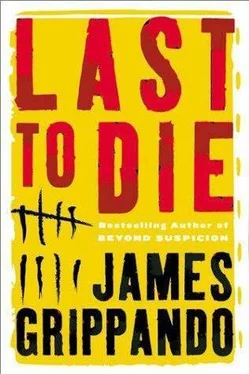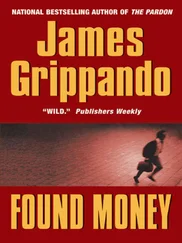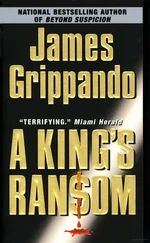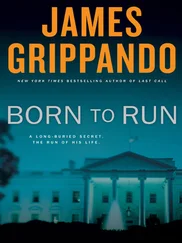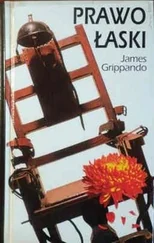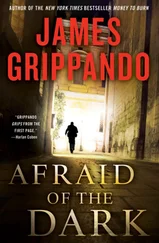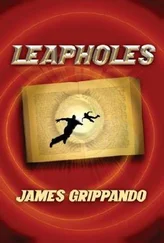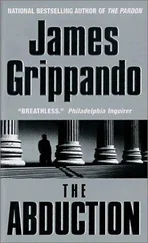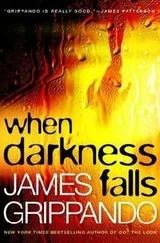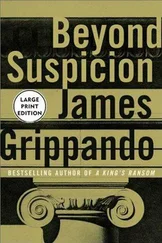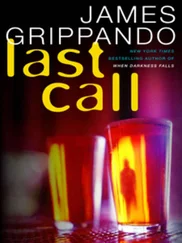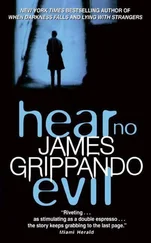Tatum went at him and grabbed his throat. With his other hand he tried to contain the dog, but it leaped from Colletti’s arms and bit Tatum on the wrist. Tatum flung the animal across the road and recoiled in pain. He was bleeding as he backed away.
Colletti massaged his throat. Tatum hadn’t held him long, but it was a hard, martial arts-style hit. He caught his breath and said, “See that, Tatum? Even Muffin gets a piece of you.” He gathered up his precious dog and walked away.
Tatum just stood there, seething, watching, and holding his wrist.
They traveled halfway back to Korhogo before stopping at a hotel for the night. It would have been much easier to drive around big Lake Kossou and take the main highway north, but they opted for the scenic route through Parc National de la Marahoué, as Jack wasn’t about to leave Africa without seeing some form of wildlife besides Theo.
“They’re throwing kids,” said Theo.
“What?” said Jack.
They were having dinner at another maquis, eating grilled chicken and attiéké, a local side dish made from grated roots. A crowd had gathered in the town square across the street. A group of teenagers was moving rhythmically to the beat of a drum, but most of the audience seemed focused on a spectacle of some sort.
“I swear to God,” said Theo. “There’s kids flying through the air over there.”
“It’s the child jugglers,” said Rene.
“They juggle kids?”
“It’s an old tradition under the Guéré, Dan, and I think the Wobé peoples. Jugglers train for months. The girls are specially selected from the tribe. They have to be skinny, supple, and definitely not prone to crying. Five years old is a prime age.”
“And they throw them through the air?” said Jack.
Theo was standing on his chair for a better view. “It’s amazing. Let’s go watch.”
Rene said, “Africa has some wonderful traditions, but this one doesn’t exactly jibe with my pediatric training.”
“I think I’ll pass, too,” said Jack.
“Suit yourself,” said Theo. He stuffed a piece of grilled chicken into his mouth and started across the street.
Jack tilted back another glass of palm wine. After half a bottle, he was beginning to acquire a taste for it. Rene refilled her glass, then raised it and said, “Well, here’s to Jean Luc. May he rest in pieces.”
Jack met her toast, fully understanding that she wouldn’t want to wish “peace” on Sally’s ex, even in death. “That was some surprise, huh?”
“Not really. Daloa can be a dangerous place, even if you’re careful.”
“Obviously he wasn’t careful enough.”
“It only takes one mistake. The Red Cross chose Daloa as this year’s center of activities for World AIDS Day. What does that tell you?”
“I guess he had a weakness for the local women.”
“Or some of the boys he bought.”
There was bitterness in her tone, and Jack didn’t even want to think about how often that must have happened. Jack asked, “When did he and Sally divorce?”
“A few months ago. Why?”
“I was thinking on the car ride here. The fact that he died of AIDS may shed some light on Sally’s state of mind.”
“I was thinking about that, too.”
“Did Jean Luc give her AIDS?”
“I don’t know.”
“It would fit with some of the things I’ve been hearing about her.”
“What have you been hearing?”
Jack couldn’t tell her that Sally tried to hire Tatum to shoot her, since that was a privileged communication from his client. He had to keep it general, as he had in their first meeting in Korhogo. “She just didn’t seem to be terribly afraid of death. And I don’t say that lightly. I understand what she went through. My sense is that she had no reason to go on living after the murder of her daughter. If she had AIDS, she might have felt as though there was no point in prolonging the inevitable.”
“Are you back on that theory you mentioned to me before-that Sally might have hired someone to kill her?”
“It’s not much of a stretch to believe that she’d hire someone to kill her under these circumstances.”
She looked away, and sadness came over her. “I’d be lying if I told you that I hadn’t worried about Sally. But this idea that she would have hired someone to shoot her, I don’t really understand. Why go to all that trouble? Why wouldn’t she have just shot herself?”
“You could have been the reason.”
“You’re blaming me?”
“No, no. Quite the opposite.”
“I’m not following you.”
“Here’s something that might help you understand. A few years ago, I saw a story on television about some Academy Award-winning actress. I forget who it was, but that’s not important. The point is, before she made it big, she was so unhappy that she decided to kill herself. Problem was, she was afraid her friends and family would feel guilty that they hadn’t noticed her depression in time to keep her from committing suicide. So she tried to hire a guy to shoot her, make it look like a random murder. The gunman talked her out of it.”
“So you think Sally…”
“I think she might have found a less compassionate hit man.”
“Do you have any idea who it might have been?”
Jack looked across the street. Theo was dancing with two women, laughing, waving his arms, and having a good time. It suddenly reminded him of the talk he’d had with the detective on Sally’s case, who’d tried to warn him that Tatum was nothing like his brother Theo.
“That’s what I need to sort out,” said Jack.
Kelsey was steeped in murder-all of its elements, from malice aforethought to the mortal wound.
Criminal law had been her favorite first-year course, and she’d spent probably more hours than necessary boning up on it over the last few weeks. She was devoting more and more time to the Sally Fenning case, and the media were starting to make it sound as though the police were narrowing their suspects. If an indictment was headed in the direction of Jack’s client, she wanted to second chair the trial-but only if Jack thought she knew her stuff.
She took one last gulp of cold coffee and closed her books. The University of Miami Law Library was open till midnight, and she’d closed it down again. The vacuum cleaners were already humming across the carpet, and some frantic law-review type was cursing at a photocopy machine that had been switched off for the night.
“Good night, Felipe,” she said to the ponytailed undergrad who worked behind the desk.
“Night,” he said.
She passed by the sensors and exited through the double doors to the courtyard. The night was cool, so she laid her book bag on the bench to pull on her sweatshirt. It had been crowded when she’d arrived for her night class, so she’d parked at the far end of the student lot near the intramural fields. She had to cut across the campus to get there, and she didn’t give it a second thought until she reached a dark
K stretch of sidewalk beneath a cluster of huge banyan trees. The sun had been shining when she’d arrived, and it was a very different walk at midnight. The thick canopy overhead blocked out the moonlight, streetlights, light of any sort. There were only shadows ahead, different shades of black. Banyans were strange, eerie trees with ropy roots that hung from branches and reached for the ground like long tentacles. Kelsey wove her way through them, dodging the hanging roots like a slow-motion slalom skier. She missed one in the darkness, bumping straight into it and giving herself a start. She took a step back and tried to collect herself, but her pulse raced. Halfway through the banyans, she suddenly felt the urge to turn and run back. She forced herself forward, only to meet another dangling root. It tangled in her hair and made her whole body quiver. She pushed it aside and hurried forward, swinging her arm like a machete through the jungle. Her pace quickened, and she was nearly at a dead run when she slammed into something that brought her to a halt and took her breath away.
Читать дальше
